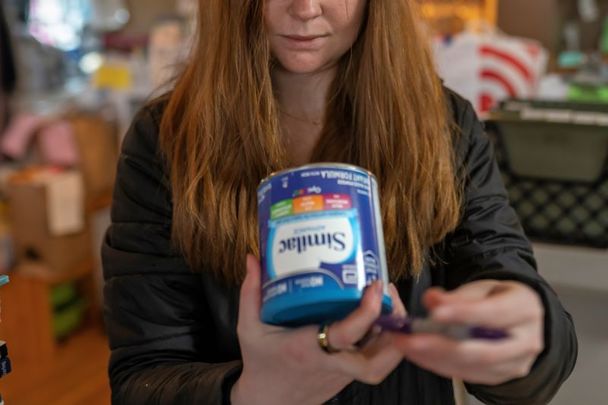“We’ve air-shipped millions of cans of infant formula powder into the US from our FDA-registered facility in Cootehill, [Co Cavan] Ireland” since February, Abbott Nutrition said in a statement on May 13.
Abbott Nutrition voluntarily recalled one lot of its Similac powdered formula on February 28 after a report of one infant death from a bacterial infection was linked to the Similac lot.
This recall came in addition to its February 17 recall of powder formulas, including Similac, Alimentum and EleCare manufactured in Abbott's facility in Sturgis, Michigan.
In the wake of the recall, the Food & Drug Administration (FDA), along with the Centers for Disease Control and Prevention (CDC), launched an investigation into Abbott's facilities in Sturgis, Michigan where the Similac lot was manufactured.
While the investigation has since closed, the lack of supply from Abbott has exacerbated a broad shortage of baby formula, which was been hit by supply chain snags and historic inflation rates, according to Reuters.
Recent figures from Datasembly show that the nationwide out-of-stock percentage for baby formula in the US is 43 percent for the week ending May 8.
“This issue has been compounded by supply chain challenges, product recalls, and historic inflation,” CEO of Datasembly Ben Reich said. “The category started to see stocking challenges beginning in July 2021, and the situation has continued to worsen into 2022.”
On May 11, Abbott said in a statement: “We know the recall has worsened an already existing industry-wide infant formula shortage in the US and we've been seeing and hearing the stress and despair of parents who are facing empty shelves.
“We deeply regret the situation and since the recall, we've been working to increase supply at our other FDA-registered facilities, including bringing in Similac from our site in Cootehill, Ireland, by air and producing more liquid Similac and Alimentum. We also began releasing metabolic formulas that were on hold earlier this month at FDA's request to those who need these unique formulas.”
“We have an FDA-registered plant in Cootehill, Ireland, where we've increased the volume of Similac Advance powder formula produced for the US. We're an air-shipping product from this facility into the US daily and the product is being restocked regularly.
“Our Cootehill team sources ingredients from approximately 1,000 dairy farms in the local area. Following stringent quality and safety processes, each batch of infant formula undergoes extensive quality checks before it reaches stores.
“We know that millions of parents and caregivers around the world count on our formulas to feed their babies and children and we are doing everything possible to address this situation.”
On May 12, the Centers for Disease Control and Prevention (CDC) in the US confirmed it had closed its investigation into Abbott and that no additional cases have been identified as part of the investigation.
The following day, May 13, Abbott said that “subject to FDA approval, we could restart our Sturgis, Michigan site within two weeks.”
The baby formula shortage was a top-line matter during Thursday’s press briefing at the White House.
“President Biden has directed the administration to work urgently to ensure that infant formula is safe and available for families across the country during the Abbott Nutrition voluntary recall," Press Secretary Jen Psaki said. "This is work that’s been underway for months."
Psaki said Biden spoke with retailers and manufacturers and called on them "to do more to help families purchase infant formula," and to inquire about how the administration can assist.
Additional steps being taken to infant formula onto store shelves include "cutting red tape to get more infant formula to store shelves quicker by urging states to provide consumers flexibility on the types of formula they can buy with WIC dollars; calling on the FTC and state attorneys general to crack down on any price gouging or unfair market practices related to sales of infant formula, like third-party sellers reselling formula at steep prices; and increasing the supply of formula through increased exports — imports."
Psaki added that the administration "will continue to monitor this situation and identify other ways we can support the safe and rapid increase in the production and distribution of baby formula.”




Comments